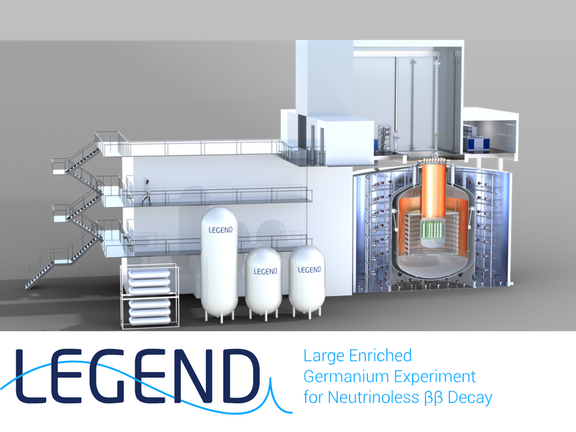The Federal Ministry of Research, Technology and Space (BMFTR), together with the Science Council and representatives of the evaluation committees, has presented the shortlist of the most promising projects from the national prioritisation process for large-scale research infrastructures. A total of nine proposals were selected from 32 submissions.
This includes the planned international project LEGEND-1000 (Large Enriched Germanium Experiment for Neutrinoless Double Beta Decay) in the Italian underground laboratory Laboratori Nazionali del Gran Sasso (LNGS). The proposal was submitted by the Max Planck Institute for Nuclear Physics and the Technical University of Munich. The MPIK is involved in LEGEND with the Hinton and Mertens divisions.
LEGEND-1000 is designed to explore fundamental properties of neutrinos and answer key questions in particle physics and cosmology. The main goal is the detection of neutrinoless double beta decay - a process that would show that neutrinos are their own antiparticles and would also provide information about neutrino mass and insights into the matter-antimatter asymmetry in the universe. The application of innovative technologies will also enable the search for dark matter and the exploration of physics beyond the standard model. To this end, large, highly sensitive germanium semiconductor detectors, advanced microelectronics and powerful background signal suppression methods, including AI, will be used to benefit applications in science, medicine and industry.
The BMFTR has launched a prioritisation process for extensive research infrastructures in 2024. In doing so, the BMFTR is following the roadmap process from 2015 as a basis for future decisions. The Science Council will closely monitor the further development of the projects on the shortlist. At the same time, the BMFTR will begin talks with the participating institutions and federal states on implementation.
